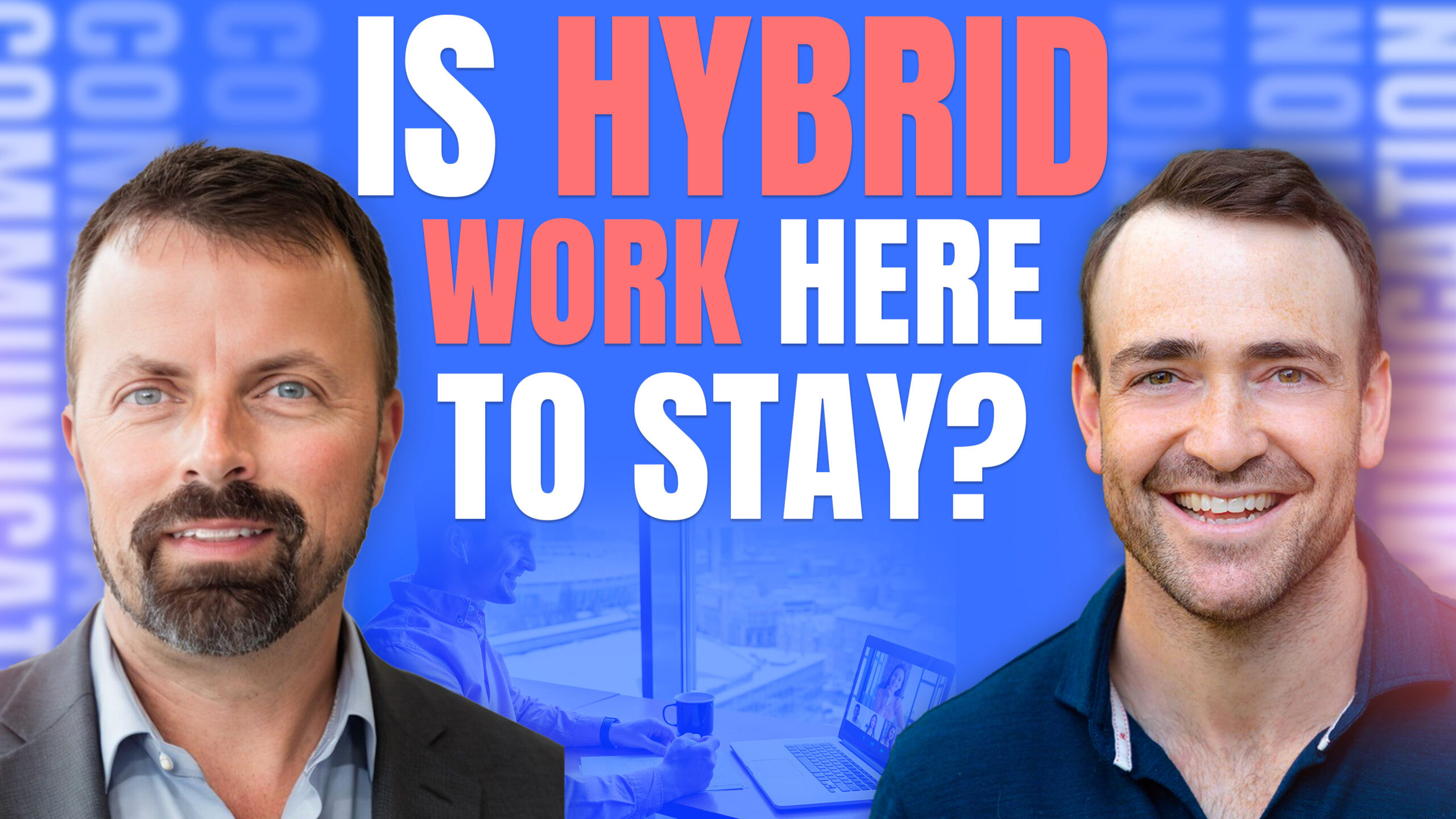
Scott Fleszar,
CEO of SafeSend
Can Hybrid Work Fix Office Culture?
Key Takeaways
The workplace is still in transition
The discussion underscores that there’s no universal answer to the office vs. remote debate. Different business models, growth stages, and team compositions demand different approaches. What’s clear, however, is that hybrid flexibility is here to stay, and leaders must adapt policies dynamically rather than defaulting to pre-pandemic norms.
“Organizations are still experimenting — the “right” workplace model depends on who you are, where you are in your growth, and how your teams actually work best.”
Leverage has shifted toward employees — but it’s cyclical
Fleszar and Simmons note that employee–employer leverage fluctuates with market cycles. While employees gained flexibility and bargaining power during the pandemic, employers are now regaining influence as the economy tightens. Smart HR leaders will prepare for these swings by balancing empathy with business rigor, ensuring policies remain fair and sustainable even as leverage shifts.
“It’s not about permanent power on one side — the best companies are building mutual trust that survives market cycles.”
Benefits and the employee value proposition must evolve
As hybrid and remote models take hold, traditional benefits packages are being reimagined. Employees now value flexibility, mental health support, and learning opportunities as much as traditional perks like health insurance or office lunches. HR leaders need to think holistically about “total rewards,” aligning benefits with how people actually live and work in 2025.
“The modern benefits landscape is about personalization — meeting people where they are, both physically and emotionally.”
Culture needs intentional design in distributed teams
With fewer in-person interactions, culture can no longer be left to chance. Leaders must actively design moments of connection and belonging. This includes clear communication rituals, consistent leadership visibility, and recognition systems that cross remote boundaries. HR teams play a crucial role in codifying culture so that it survives growth and decentralization.
“Hybrid culture isn’t weaker by default — it’s weaker when left unmanaged.”
The future of work demands continuous experimentation
A shared theme throughout the discussion is that the future of work is a moving target. Organizations should treat their people strategies like product roadmaps—test, learn, iterate. HR and people leaders who adopt an agile mindset will be best equipped to handle rapid changes in technology, workforce expectations, and economic realities.
“The companies that thrive will be the ones that treat work design as a living experiment, not a fixed policy.”
Watch the full video of Can Hybrid Work Fix Office Culture?
Timestamps:
00:00 Intro
00:47 Scott’s opinion on office vs. hybrid vs. remote work
04:08 COVID pandemic and adapting to remote work
06:55 Scaling a remote business during COVID
08:23 Managing hybrid work as a small business
12:14 Pros and cons of hybrid vs. remote work
16:56 Overcoming challenges of returning to the office
20:33 Importance of engagement and culture in hybrid models
21:47 The shift in employee leverage post-pandemic
26:45 Onboarding challenges in a remote work environment
32:07 Scott’s Top 3 tips for navigating hybrid work
34:40 Where to connect with Scott Fleszar?
Stronger Teams Start with Boon

Scale
Personal and professional coaching accessible to all employees

Grow
Customized, cohort-based leadership development programs

Exec
Premium executive coaching designed for complex challenges

Together
Collaborative coaching for teams, departments, and the entire company
Subscribe Here
Want to get notified when new episodes of Have a Better Day go live? Subscribe wherever you get your podcasts!




